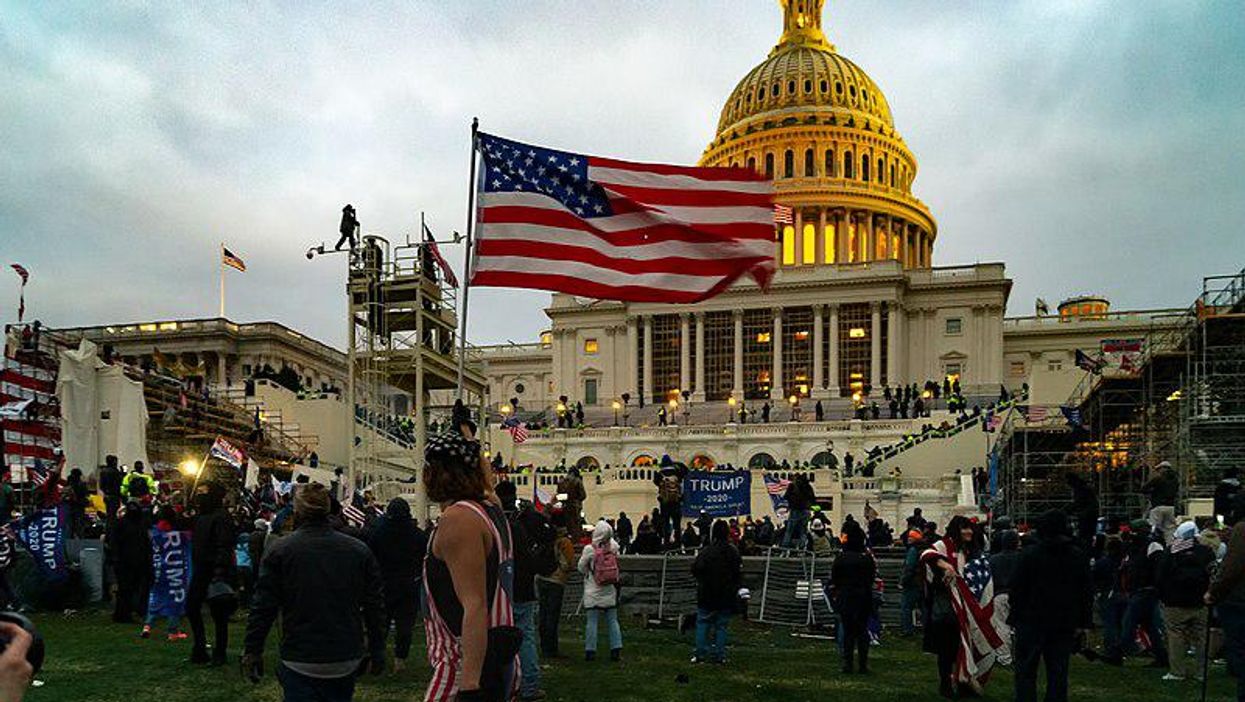House Select Committee Defers To White House On Delay Of Some Documents

Pro-Trump rioters at U.S. Capitol on January 6, 2021
Reprinted with permission from Daily Kos
The House Select Committee on the January 6 Attack on the United States Capitol has agreed to delay or withdraw a portion of its requests for former President Donald Trump’s White House records, specifically deferring their demand for documents that do not appear to have any bearing on the White House’s preparations for or response to efforts to overturn the 2020 election.
The announcement was made public by White House Counsel Dana Remus. President Joe Biden maintains his initial position that the public’s interest outweighs Trump’s interest in shielding the documents. The only change now is the concern that records unrelated to the Jan. 6 investigation, if divulged publicly, could jeopardize national security.
Incidentally, the maneuver is also legally beneficial for the committee’s probe: If they narrow the request for documents, it becomes harder for the former president and his attorneys to fortify claims of overreach on the executive branch in court.
In a letter detailing the deferral agreement, Deputy Counsel for the White House Jonathan Su explained that the committee is interesting in pursuing its investigation while also “preserving important Executive Branch prerogatives,” but the panel also highlighted that it could, if necessary down the line, assert privilege over the deferred documents.
Among some 511 pages remitted to the select committee were records deemed unrelated to the insurrection probe, or they were documents regarding deliberations by the National Security Council.
This latest agreement between the White House and the committee does not mean that the committee has stopped its probe.
“The Select Committee welcomes President Biden’s decision to clear the way for the production of another set of records. The committee has agreed to defer action on certain records as part of the accommodations process, as was the case with an earlier tranche of records,” a committee spokesman said in a statement Tuesday. “The Select Committee has not withdrawn its request for these records and will continue to engage with the executive branch to ensure the committee gets access to all the information relevant to our probe."
So far President Biden has agreed to release over 700 pages of Trump’s records to the committee, including things like visitor and call logs, memos, and emails. There are also speech drafts and several pages of handwritten notes from former White House Chief of Staff Mark Meadows. Investigators argue that these records are critical to understanding what unfolded inside the White House during the attack on the Capitol and will provide clarity on the administration’s overarching attempt to overturn the U.S. election.
Trump has already lost two legal attempts to shroud those records. What happens next will be integral to the committee’s investigation.
A lower court in Washington already ordered the records released, but the D.C. Court of Appeals agreed to keep the documents under wraps until Dec. 30 so Trump could lodge his appeal to the Supreme Court.
Last week, as expected, Trump asked the U.S. Supreme Court to bar the disclosure from the National Archives and Records Administration. In an appeal spanning nearly 200 pages, the former president derided the committee as unconstitutional and a threat to the separation of powers.
In response, the Jan. 6 committee urged the Supreme Court to respond to Trump’s appeal quickly, saying that both sides could have all their briefs filed by Dec. 30. Investigators suggested both parties be given two weeks, or until Jan. 14, to have their cases heard. This would give the committee time to strategize its response to whatever Trump files.
The pressure to get this legal fight with Trump behind the committee is on as the 2022 midterms loom. The committee is eager to craft legislation that would prevent a rogue president from usurping power and without a majority in the House or Senate, those prospects dwindle drastically.
“Delay would inflict a serious injury on the Select Committee and the public by interfering with this mandate. The Select Committee needs the requested documents now to help shape the direction of the investigation and allow the Select Committee to timely recommend remedial legislation,” the committee said in its eight-page response.
If Trump loses this fight, Committee Chair Bennie Thompson, a Mississippi Democrat, recently reconfirmed to reporters that the panel is after Trump’s Jan. 5 and Jan. 6 White House call records.
Trump reportedly made several phone calls from the White House that day to his advisers—some official, some not—and lawyers including John Eastman, Steve Bannon, Boris Epshteyn, and Rudy Giuliani. Many of those calls, investigators allege, could involve discussions about a vast pressure campaign on then-Vice President Mike Pence. Trump wanted Pence to stop the certification process, something that was baldly unconstitutional.








